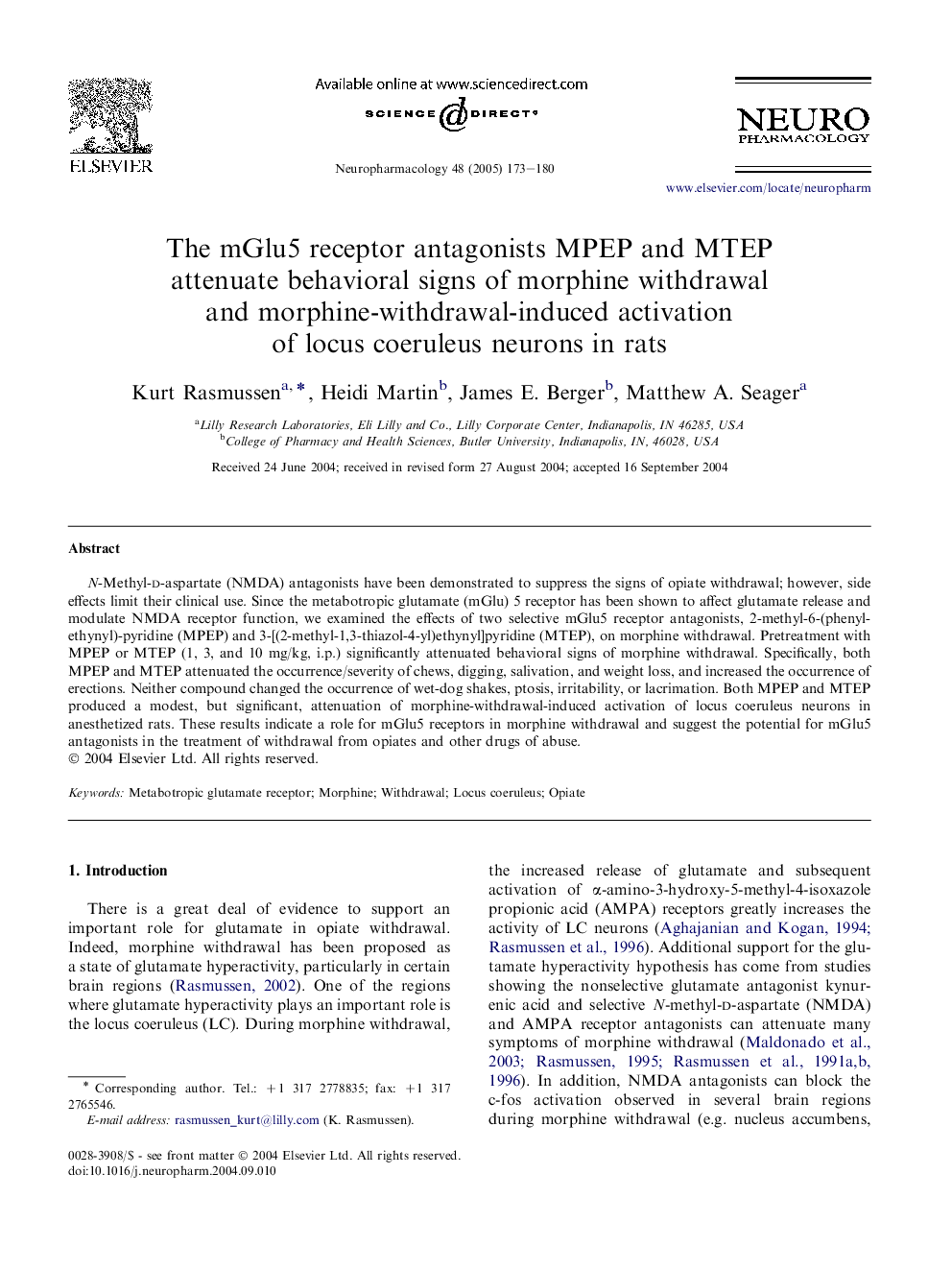| کد مقاله | کد نشریه | سال انتشار | مقاله انگلیسی | نسخه تمام متن |
|---|---|---|---|---|
| 8998295 | 1115619 | 2005 | 8 صفحه PDF | دانلود رایگان |
عنوان انگلیسی مقاله ISI
The mGlu5 receptor antagonists MPEP and MTEP attenuate behavioral signs of morphine withdrawal and morphine-withdrawal-induced activation of locus coeruleus neurons in rats
دانلود مقاله + سفارش ترجمه
دانلود مقاله ISI انگلیسی
رایگان برای ایرانیان
کلمات کلیدی
موضوعات مرتبط
علوم زیستی و بیوفناوری
علم عصب شناسی
علوم اعصاب رفتاری
پیش نمایش صفحه اول مقاله

چکیده انگلیسی
N-Methyl-d-aspartate (NMDA) antagonists have been demonstrated to suppress the signs of opiate withdrawal; however, side effects limit their clinical use. Since the metabotropic glutamate (mGlu) 5 receptor has been shown to affect glutamate release and modulate NMDA receptor function, we examined the effects of two selective mGlu5 receptor antagonists, 2-methyl-6-(phenyl-ethynyl)-pyridine (MPEP) and 3-[(2-methyl-1,3-thiazol-4-yl)ethynyl]pyridine (MTEP), on morphine withdrawal. Pretreatment with MPEP or MTEP (1, 3, and 10 mg/kg, i.p.) significantly attenuated behavioral signs of morphine withdrawal. Specifically, both MPEP and MTEP attenuated the occurrence/severity of chews, digging, salivation, and weight loss, and increased the occurrence of erections. Neither compound changed the occurrence of wet-dog shakes, ptosis, irritability, or lacrimation. Both MPEP and MTEP produced a modest, but significant, attenuation of morphine-withdrawal-induced activation of locus coeruleus neurons in anesthetized rats. These results indicate a role for mGlu5 receptors in morphine withdrawal and suggest the potential for mGlu5 antagonists in the treatment of withdrawal from opiates and other drugs of abuse.
ناشر
Database: Elsevier - ScienceDirect (ساینس دایرکت)
Journal: Neuropharmacology - Volume 48, Issue 2, February 2005, Pages 173-180
Journal: Neuropharmacology - Volume 48, Issue 2, February 2005, Pages 173-180
نویسندگان
Kurt Rasmussen, Heidi Martin, James E. Berger, Matthew A. Seager,